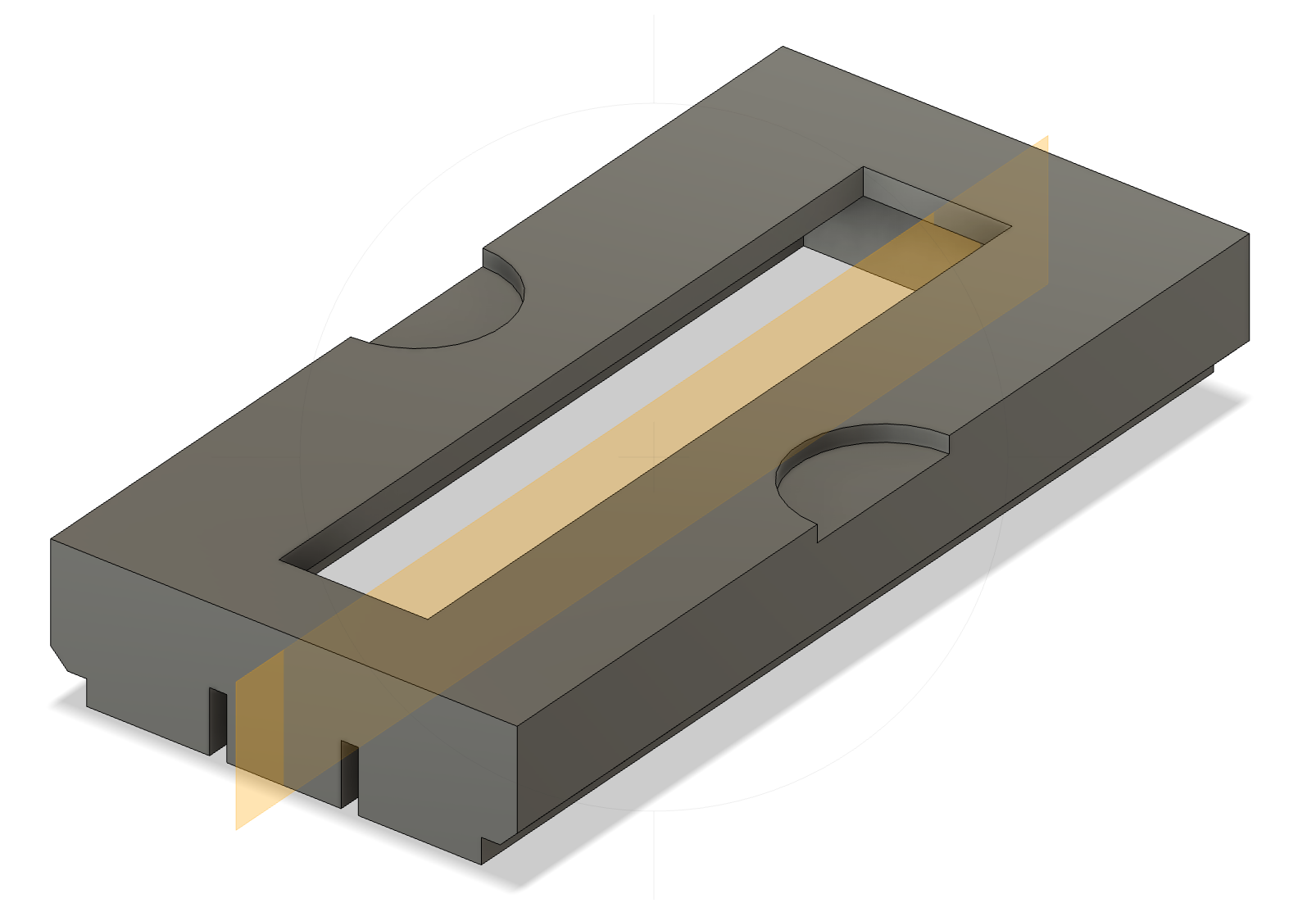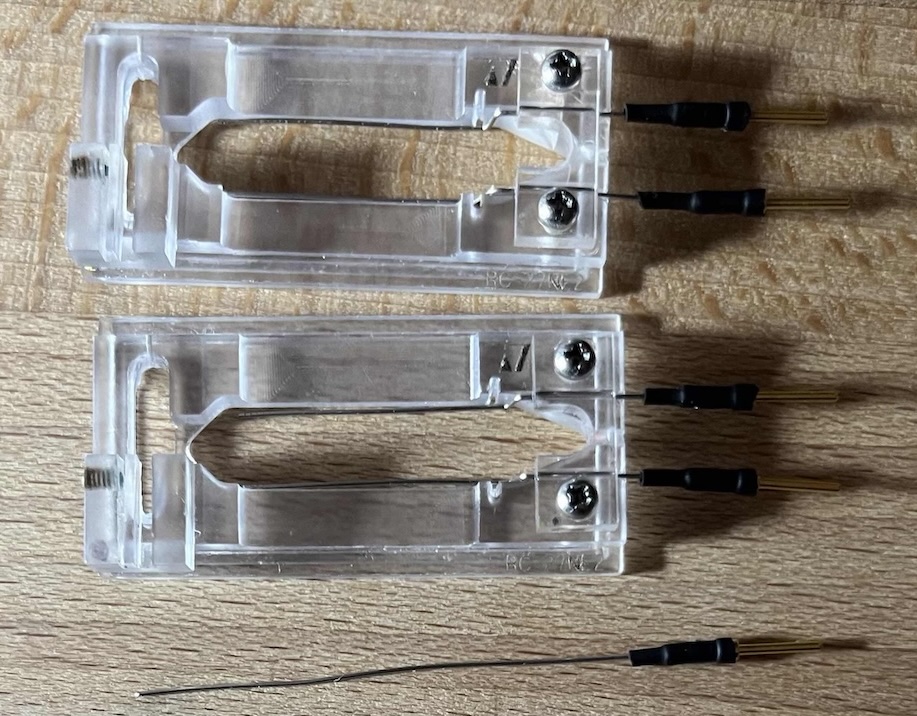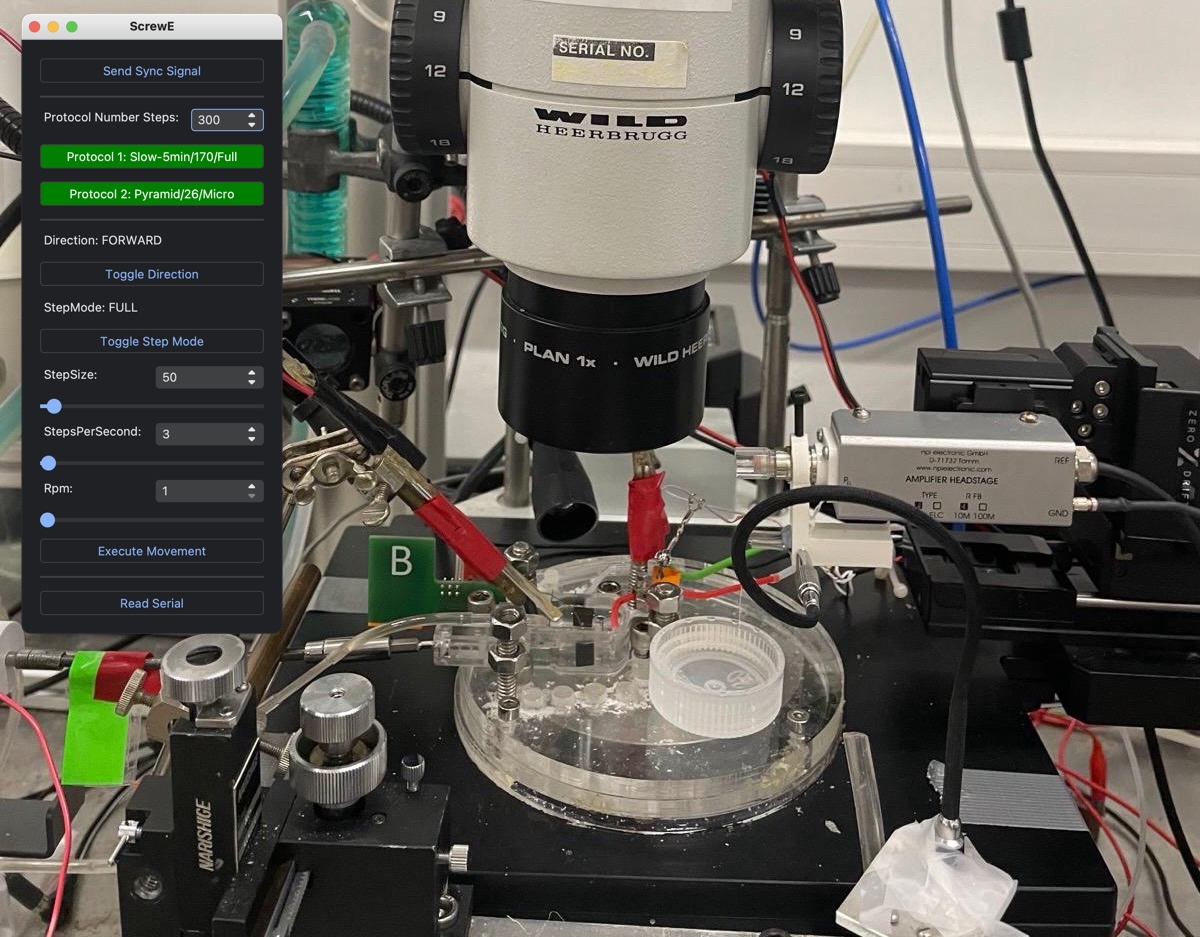DIY Modular Orbital Shaker
Manual/Description to follow. Please contact me if you are interested in building one
yourself right away. We may also be able to send a limited number of pre-built shakers
around,
if time and funding allow.
Download the STLs here.

MyoPacer Accessories
We frequently use the MyoPacer and various chambers for it in our experiments.
Over the years, we've repaired and modified them.
One addition is a 3D-printed tightly-fitting top of a PH-1 chamber
(Warner Instruments, Hamden, MA, USA) designed to minimize evaporation—especially
important for small volumes and longer experiments (>10 minutes) for experiments
that don't need direct access to the chamber and don't use perfusion.
Simply print the chamber and place a coverslip, sealed with silicone grease, on top.
Download the STL here.

Additionally, we've replaced the electrodes of these chambers multiple times.
We’ve had good results with platinum (8€/cm; example
supplier)
and platinum–iridium (3.5€/cm; example
supplier)
electrodes, both with a 0.5 mm diameter. You’ll need 5 cm of wire per electrode,
which should be carefully bent to match the original form. I also recommend crimping the
connectors
onto the electrodes and securing the connection with a shrink tube. Gold-plated D-SUB
connectors
are both affordable (0.3€/piece; example
supplier)
and reliable.

MyoDish Accessories: ScrewE
Simple Arduino-controlled, stepper motor-driven screwdriver,
primarily for the automated control of passive force in MyoDish chambers.
Bitholder is attached using a flexible shaft, so it can also be used while the chamber is on
a rocking table,
without needing to physically 'rock' the motor. Also works in high humidity/temperature
environments (e.g., incubators).
Comes with a simple GUI for the Arduino, which allows for
protocol-based adjustments. Can also output digital signals for synchronization with
other devices, such as the Digidata amplifiers (Molecular Devices, San Jose, CA, USA).
Synchronisation is particularly useful for the automated control of the motor during
electrophysiological recordings, such as sharp electrode recordings.
